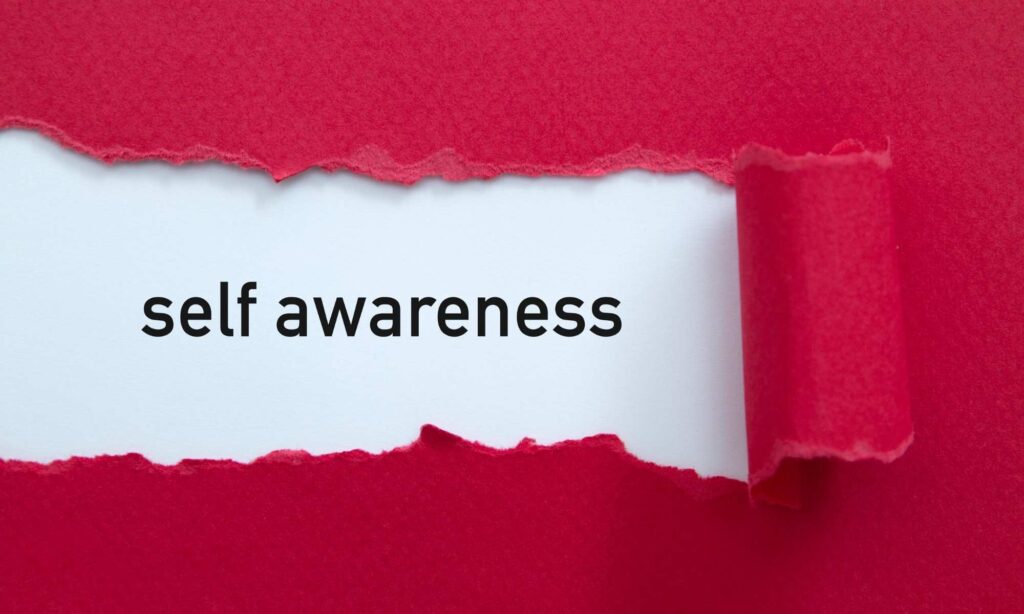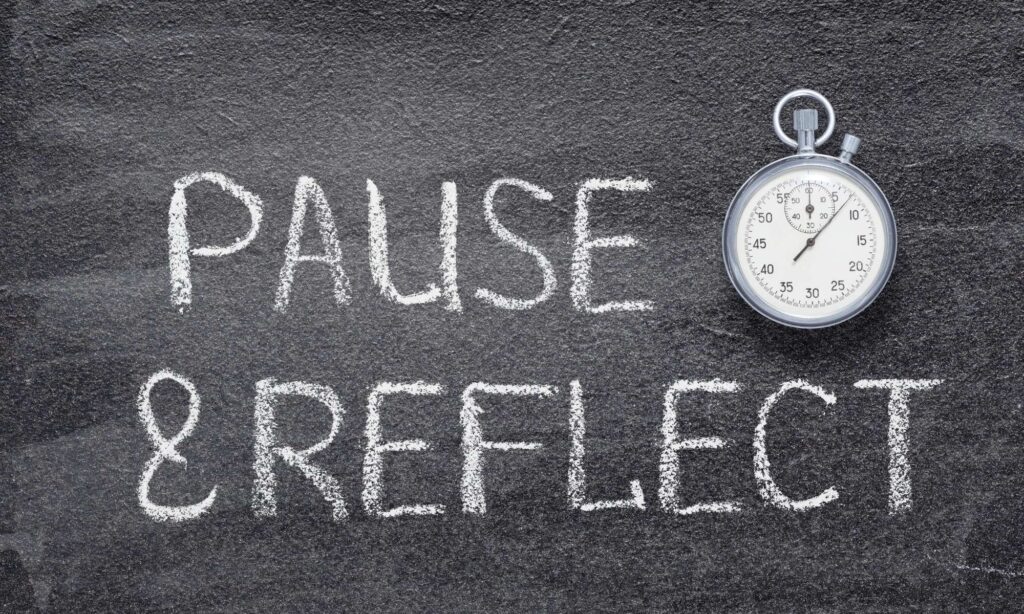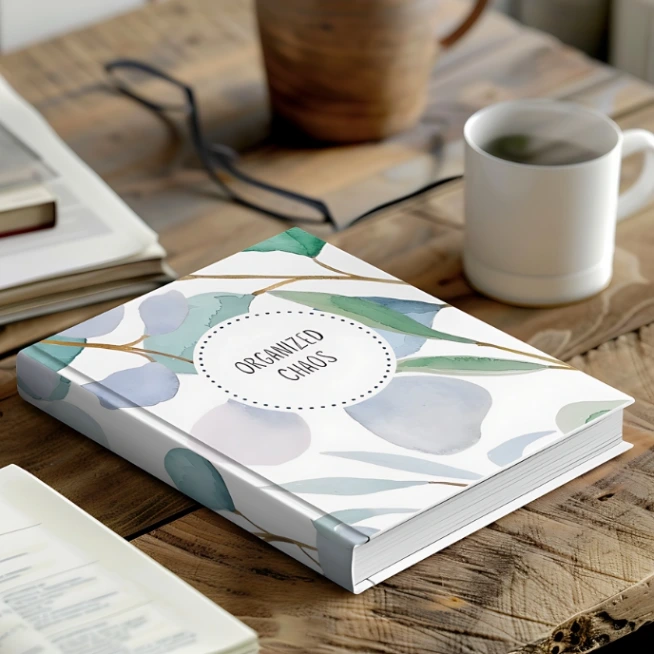Embrace Your Journey: Essential Self-Discovery Techniques to Uncover Your True Self

Table of Contents
We live in a world that constantly tells us who to be, what to achieve, and how to behave. Maybe, you are in a relationship or have a group of friends you just follow, because you want to be a part of it. Or maybe, your family has certain expectations you don’t want to disappoint. Maybe that influencer on Instagram or the model in that magazine you’ve read made you think you should be and look a certain way. But have you ever thought of what you truly want for yourself? Beneath all the noise, expectations, and routines lies one of the most powerful truths: to live a fulfilling life, you must first know yourself.
Self-discovery isn’t some abstract concept reserved for retreats or therapists’ offices. It’s a real, raw, daily practice that empowers you to make choices that align with your deepest truths. It’s how you unlock your potential, boost confidence, and build a life that actually feels like yours.
This article dives into the most practical and powerful ways to explore who you truly are – using proven self-discovery techniques, reflection tools, and journaling prompts to get you started.

Why Self-Discovery Matters More Than Ever
Let’s face it – modern life is loud. We’re bombarded with content, comparisons, and expectations from every direction. It’s easy to lose yourself in all the noise. That’s where self-discovery comes in.
When you truly know yourself, you:
- Make better decisions: You stop saying yes to things that drain you and start choosing what aligns with your values.
- Build deeper relationships: Knowing yourself helps you show up authentically with others – no masks needed.
- Boost resilience: You bounce back faster because you’re grounded in who you are, not what others think.
- Find more joy: Life becomes more meaningful when it’s lived on your terms.
Self-discovery isn’t about fixing yourself – it’s about uncovering the truth that’s already there. It’s a return to you. And in a world where everyone’s trying to be someone else, that’s powerful.
How to Start Your Self-Discovery Journey
The journey of self-discovery starts not with a bang, but with a breath. You don’t need a 10-day silent retreat or a library of self-help books (although I do love the latter and will suggest you a couple of them at the end of this article). What you need is willingness – and a little space to listen inward.
Here are simple steps to begin:
- Create quiet time daily: Even 10–15 minutes of solitude can open the door to self-awareness. No phone. No distractions. Just you and your thoughts.
- Write it down: Journaling is a powerful mirror. It gives shape to your inner world and reveals patterns, truths, and questions you didn’t know you had.
- Get curious, not critical: Self-discovery isn’t about judging what you find – it’s about exploring it. Approach yourself with the same kindness you’d show a friend.
Starting small is key. Don’t pressure yourself to “figure it all out.” This is a journey – not a quiz with the right answers. Some days will feel clear. Others will feel murky. Both are valuable.

Journaling Prompts for Self-Discovery
Journaling is one of the simplest yet most transformative tools for self-discovery. It allows you to slow down, observe your thoughts, and ask deeper questions – without needing anyone else’s permission or validation.
Below are 10 powerful journaling prompts designed to help you know yourself better. Don’t rush through them. Pick one a day. Or return to a question weekly. You’ll be surprised how your answers evolve over time.
#1: Who am I when no one is watching?
We all wear labels – parent or child, partner, manager, student. But who are you outside of those roles? Write about the person behind the titles and expectations?
#2: What do I value most in life?
List what truly matters to you – not what you think should matter. Is it freedom? Honesty? Adventure? Connection? Distinguish which are truly yours vs. inherited from family/society.
#3: When do I feel most like myself?
Think about moments when you felt truly you – unfiltered, alive, aligned. What were you doing? Who were you with?
#4: What beliefs shape my decisions?
Explore your internal narratives. Are you operating from confidence or fear? Whose voice echoes in your head when you make choices?
#5: What am I proud of – and why?
Pride reveals values. Write about achievements or moments that made you feel proud – and notice the themes that show up.
#6: What does my ideal day look like?
Describe your perfect day from start to finish. This isn’t fantasy – it’s a roadmap to what matters most. Think about your ideal day in your current situation, but also your ideal day if you didn’t have to think about money.
#7: Who inspires me and why?
Your heroes reveal your hopes. Dig into what you admire about them – it’s often what you want to embody.
#8: What drains me vs. energises me?
List the people, habits, and environments that lift you up or pull you down. Awareness is the first step to change.
#9: What patterns keep showing up in my life?
We all repeat lessons until we learn them. What recurring challenges, behaviours, or relationships do you notice?
#10: What am I afraid to admit to myself?
This is the hardest prompt – and the most freeing. Honesty with yourself is where transformation begins.

Reflection Techniques to Deepen Your Self-Knowledge
While journaling is an amazing entry point, there are other self-discovery techniques that can take your inner work to another level. Think of these methods as different mirrors – each revealing a unique reflection of who you are.
Here are three powerful techniques:
1. Mindfulness Meditation
Mindfulness helps you observe your thoughts without judgement. When practised regularly, it teaches you to notice patterns, emotional triggers, and thought loops. Even five minutes a day of sitting quietly and focusing on your breath can sharpen your self-awareness.
Try this: Sit quietly, focus on your breathing, and just watch your thoughts pass by. Don’t label or judge them – simply notice.
2. Mirror Talk
It might sound awkward, but talking to yourself in the mirror helps you connect with your inner truth. It forces eye contact, vulnerability, and honesty. Ask yourself questions aloud: “How am I really feeling today?” or “What do I need to hear right now?”
Try this: Stand in front of the mirror and say something encouraging to yourself. Notice what feels real – and what feels uncomfortable.
3. Life Mapping
Draw a timeline of your life – key events, turning points, achievements, failures. Reflect on the lessons behind those moments. You’ll start to see patterns and realise how much you’ve evolved.
These self-discovery techniques may feel uncomfortable at first, but growth always begins outside your comfort zone. The goal isn’t perfection – it’s awareness. With awareness comes choice. And with choice, power.
Understand Your Core Values and Priorities
At the heart of self-discovery is understanding your core values. These are the inner truths that guide your decisions, define your fulfilment, and shape your boundaries. If you’ve ever felt out of alignment – like something was “off” even when everything looked fine on the outside – chances are you were living outside your values.
What Are Core Values?
They’re not goals. Values are the why behind your goals. You might want a promotion (goal), but what you’re really chasing is recognition, growth, or stability (value).
Knowing your values helps you:
- Set better boundaries
- Make clearer decisions
- Choose work, relationships, and environments that fit you
Core Values Exercise: The 3-Tier Method
- List 25 values: Use a master list or brainstorm on your own.
- Narrow it to 10: Pick the ones that resonate most today.
- Cut to 3–5: These are your non-negotiables – the pillars of your life.
Examples might include:
- Freedom
- Integrity
- Creativity
- Connection
- Growth
Now reflect: How are these values showing up in your life? Where are they missing?
Aligning Daily Life with Your Values
Once you’ve defined your values, use them as a compass. Ask yourself:
- “Does this decision honour my values?”
- “Am I spending my time in ways that reflect what matters most?”
When your actions align with your values, life feels less like a grind and more like a natural flow. That’s the power of using self-discovery techniques intentionally – they bring your inner truth into your everyday reality.

Activities That Help You Be Alone with Yourself
One of the most underrated self-discovery techniques is simply learning to be with yourself. No distractions, no scrolling, no constant company. Just you – in your own space, with your own thoughts. This isn’t about isolation. It’s about intentional solitude – a powerful space where insight and clarity can thrive.
Here are a few activities to help you reconnect with yourself:
1. Take a Solo Trip
Nothing builds self-trust like travelling alone. You get to choose your pace, your itinerary, your priorities. It’s not just about seeing new places – it’s about seeing yourself in a new light. Even a weekend trip close to home can spark powerful self-reflection.
This is how I started my own journey, many years back. My first solo trip turned to many and changed my life entirely. I became more independent, confident, and my entire outlook on life changed. This is how I became a Poser on Tour. 🙂
2. Do Everyday Activities Alone
Go to a café with a book or your journal. Visit a museum. Take yourself out to dinner. At first, it might feel strange. But over time, you’ll start to enjoy your own company. You’ll notice your thoughts, preferences, and reactions more clearly – because there’s no one else shaping the experience.
3. Go for Reflective Walks
Walking clears the mind like nothing else. Leave your phone behind, or keep it on airplane mode. Let your mind wander. Observe your surroundings. Ask yourself reflective questions as you walk – “What do I need more of in my life?” or “What am I not facing right now?”
4. Practice Stillness Without Purpose
Sit on a bench. Lie in the grass. Watch the sky. Do nothing. Let go of the urge to be productive. This kind of intentional stillness is rare in our busy lives – and it’s where the most honest self-discovery often happens.
By carving out time for these solo moments, you create a deeper connection with yourself – one built on presence, observation, and trust. It’s in these quiet moments that some of the most profound self-discovery takes place.
And remember – you’re never truly alone when you enjoy your own company. You’re just finally home.
Common Challenges in Self-Discovery
Let’s be real – self-discovery isn’t all clarity and insight. It’s also uncomfortable, messy, and sometimes downright confusing. That’s normal. Here are a few common obstacles you might face:
1. Fear of What You’ll Find
Digging deep means facing parts of yourself you’ve been avoiding. It’s okay to be afraid – but remember, you can’t heal what you won’t face.
2. Emotional Overwhelm
Reflection can stir up buried emotions. Let them come. Cry, rage, release. Then return to your centre. Healing happens in waves, not a straight line.
3. Resistance to Change
You’ll uncover truths that demand change. That can be scary. But staying stuck is scarier. Use small, manageable shifts to move forward.
Tip: Share your journey with someone you trust – a coach, friend, or therapist. You don’t have to walk it alone.

The Long-Term Impact of Knowing Yourself
You might start journaling out of curiosity. You might meditate to calm your anxiety. But over time, these self-discovery techniques ripple into every corner of your life.
Here’s what changes:
- You stop people-pleasing: You’re more grounded in what you want, not what others expect.
- You communicate better: When you know what you need and feel, you express it clearly.
- You create better boundaries: No more saying yes when you mean no.
- You enjoy your own company: You realise that solitude isn’t lonely – it’s sacred.
- You feel more alive: Because you’re living your truth, not someone else’s script.
Self-discovery isn’t just about self-awareness – it’s about self-ownership. When you know who you are, you become unstoppable. You’re no longer a passenger in your life. You’re the driver.
Book Recommendations
As usual, I’d like to leave you with a couple of recommendations for deeper reading on this topic:
The Subtle Art of Not Giving a F*ck, by Mark Manson
I love this books! A brutally honest guide to living a more intentional life by choosing what truly matters. Manson’s no-fluff approach encourages deep self-reflection and the courage to let go of societal pressures.
Stop Overthinking, by Nick Trenton
This practical book offers tools to quiet mental noise and break free from analysis paralysis. Trenton helps readers gain clarity, reduce anxiety, and develop a more mindful inner dialogue.
Let That Sh*t Go, by Monica Sweeney
A fun, irreverent workbook filled with prompts and affirmations to release negativity. Sweeney’s witty tone makes self-reflection feel lighter while encouraging emotional clarity and personal growth.
The Alchemist, by Paulo Coelho
A timeless tale of a young shepherd’s quest for treasure that turns into a journey of personal transformation. Coelho’s fable inspires readers to follow their dreams and trust the wisdom within.
Backed by science and real-world research, this book breaks down what true self-awareness is—and how to improve it. Eurich offers practical tools for reflection and personal growth.
The Power of Now, by Eckhart Tolle
A powerful guide to mindfulness and presence, this book teaches how to quiet the mind and live fully in the moment. Tolle’s insights help readers reconnect with their true selves.
The Self-Aware Universe: How Consciousness Creates the Material World, by Amit Pagedar
Blending quantum physics and spirituality, this book explores how consciousness shapes reality. It’s a thought-provoking read for those seeking a deeper understanding of self and the universe.
The 7 Habits of Highly Effective People, by Stephen R. Covey
A foundational personal development book that promotes intentional living through core principles. Covey’s framework empowers readers to reflect, realign, and lead a purpose-driven life.
Disclaimer: As an Amazon Associate I earn from qualifying purchases.
Conclusion: Becoming the Expert on You
The most important relationship you’ll ever have is the one with yourself. And the most powerful thing you can do in that relationship? Know yourself deeply.
By embracing self-discovery techniques like journaling, reflection, and values alignment, you move closer to your truth – not the version shaped by society, expectations, or fear, but the real, raw, brilliant you.
This journey never really ends – and that’s the beauty of it. You’re allowed to change. To grow. To become. Again and again.
So go ahead – take the time to ask yourself better questions. Get curious about your patterns, beliefs, and dreams. And keep returning to that quiet place within, where all your answers begin.
FAQs
How long does self-discovery take?
It’s a lifelong journey. There’s no finish line – only deeper layers to uncover. Start small, and let the process unfold.
Can journaling really change how I see myself?
Yes. Writing clarifies thoughts, reveals patterns, and helps you process emotions. It’s one of the most accessible and powerful self-discovery techniques.
What’s the difference between values and goals?
Values are core principles that guide your life. Goals are milestones or achievements you aim for. Values are why you want the goal.
How often should I reflect or journal?
Aim for 2–3 times a week to start. Even 10 minutes can make a difference. Consistency matters more than duration.
Is it okay to feel lost during self-discovery?
Absolutely. Feeling lost means you’re searching – and searching is how we find. Don’t rush it. Trust the process.








One thought on “Embrace Your Journey: Essential Self-Discovery Techniques to Uncover Your True Self”